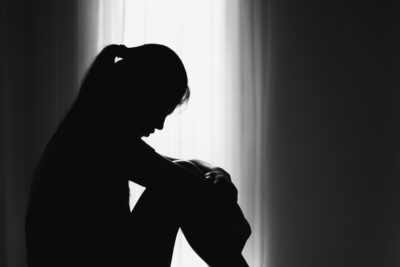
There are many signs of sexual abuse, from obvious physical signs to subtle social and relationship signs. Knowing the signs of sexual abuse can help you stop abuse and help victims get care and compensation for what they’ve suffered.
It’s important to speak with an Atlanta sexual abuse lawyer if you or someone you love believes they’ve been harmed by sexual abuse. You may also wish to call the police to report abuse.
Physical Signs of Sexual Abuse
Physical indicators can be some of the most immediate signs of sexual abuse. You might notice unexplained bruising or marks, especially in private areas. Some victims may experience difficulty walking or sitting without showing signs of other injury.
Torn or bloodied undergarments can be another concerning sign that requires immediate attention. You may also notice unexplained bleeding or discharge from private areas, which medical professionals should evaluate.
Medical professionals may also identify signs of sexually transmitted infections or unexplained injuries during routine examinations. They can also confirm whether other physical signs might add up to a sexual abuse event. If so, seek help.
Get the strong arm
Behavioral Changes That Could Signal Sexual Abuse
There are also behavioral indicators of sexual abuse. You might notice sudden withdrawal from previously enjoyed activities or unusual fear of specific places or people without a clear explanation.
Changes in sleeping patterns, including nightmares or insomnia, often appear in abuse cases. You may also observe dramatic shifts in appetite or unexplained anxiety when around certain individuals.
Regression in behavior, such as bedwetting in children who were previously toilet trained, can also be a warning sign. In children, watch for sudden changes in academic performance or unusual knowledge of sexual topics inappropriate for their age.
Emotional Indicators of Sexual Abuse
Unexplained depression or anxiety may appear suddenly in victims of sexual abuse, along with feelings of shame or guilt without apparent cause. Survivors might display sudden mood swings or emotional outbursts that seem out of character.
You may notice increased fearfulness or paranoia, especially in situations that didn’t previously cause concern. Low self-esteem and self-destructive behavior can also develop following abuse. Watch for signs of social isolation or difficulty maintaining relationships.
Social and Relationship Changes
Sexual abuse can significantly impact how someone interacts with others. Avoiding physical contact or flinching when touched, even by family members, may indicate trauma from abuse.
You might notice sudden changes in a victim’s friend groups or isolation from previous social circles. Some survivors may show unusual attachment to certain individuals while displaying extreme fear of others.
Also, watch for changes in communication patterns or unusual secretive behavior. These social shifts often accompany other warning signs and shouldn’t be ignored.
Technology and Communication Warning Signs
In today’s digital world, sexual abuse often involves technology. This also leaves signs. Watch for sudden secretive behavior around phones or computers. A victim might panic if someone comes near their screen or quickly changes what they’re viewing. Some may sleep with their phone or never leave it unattended.
Victims might also show extreme reactions if they lose access to their devices. They may become anxious when their battery dies, or they can’t connect to the internet. Multiple phones or secret social media accounts can also indicate potential abuse.
Pay attention to unexplained messages or calls at unusual hours. Some victims receive threatening texts or manipulative messages demanding photos or videos. Watch for inappropriate content in their browsing history or saved files.
Unknown numbers in their contact list or apps designed to hide communications might appear. Some abusers use gaming platforms or seemingly innocent apps to maintain contact with victims.
Signs of Abuse in Different Age Groups
Each age group shows distinct warning signs of sexual abuse. Understanding these age-specific indicators can help identify problems early and get appropriate help for the victim.
Signs in Young Children (Ages 2-11)
Young children often lack the vocabulary to describe abuse directly. They may use dolls or drawings to act out inappropriate sexual scenarios. Watch for age-inappropriate sexual knowledge or behavior.
Physical signs are often more noticeable in young children. These might include difficulty walking or using the bathroom, or unexplained pain in private areas. Children this age may also start having accidents after being fully potty trained.
Signs in Teenagers (Ages 12-17)
Teenagers may show more emotional and behavioral changes. Watch for sudden changes in dress, like wearing many layers regardless of weather. They might begin self-harming behaviors or show signs of depression and anxiety.
Social changes are common in sexually abused teens. They may suddenly cut off friendships, quit extracurricular activities, or show extreme changes in social media use. Some might also begin risky behaviors like substance use. Speak with an Atlanta school sexual abuse lawyer if you suspect abuse is happening at school.
Signs in Adults
Adult victims often hide their trauma through work addiction or perfectionism. They might have difficulty maintaining intimate relationships or show extreme reactions to normal physical contact.
Some adults may minimize or deny their abuse experiences. Watch for signs of post-traumatic stress disorder, including flashbacks, severe anxiety, or panic attacks in certain situations.
When to Seek Legal Help
If you recognize any of these signs of sexual abuse in someone, it’s crucial to take action. Document any concerning behaviors or physical signs you observe, as this information can be valuable for your case.
Our sexual abuse attorneys understand the sensitive nature of these cases and can help protect your rights. We offer confidential consultations where you can discuss your concerns in a safe environment.
Don’t wait to get the support you need. Contact our compassionate lawyers today for a confidential consultation about your situation. We’re here to listen and help you understand your legal options while protecting your rights and dignity.
404-400-4000 or complete a Free Case Evaluation form
